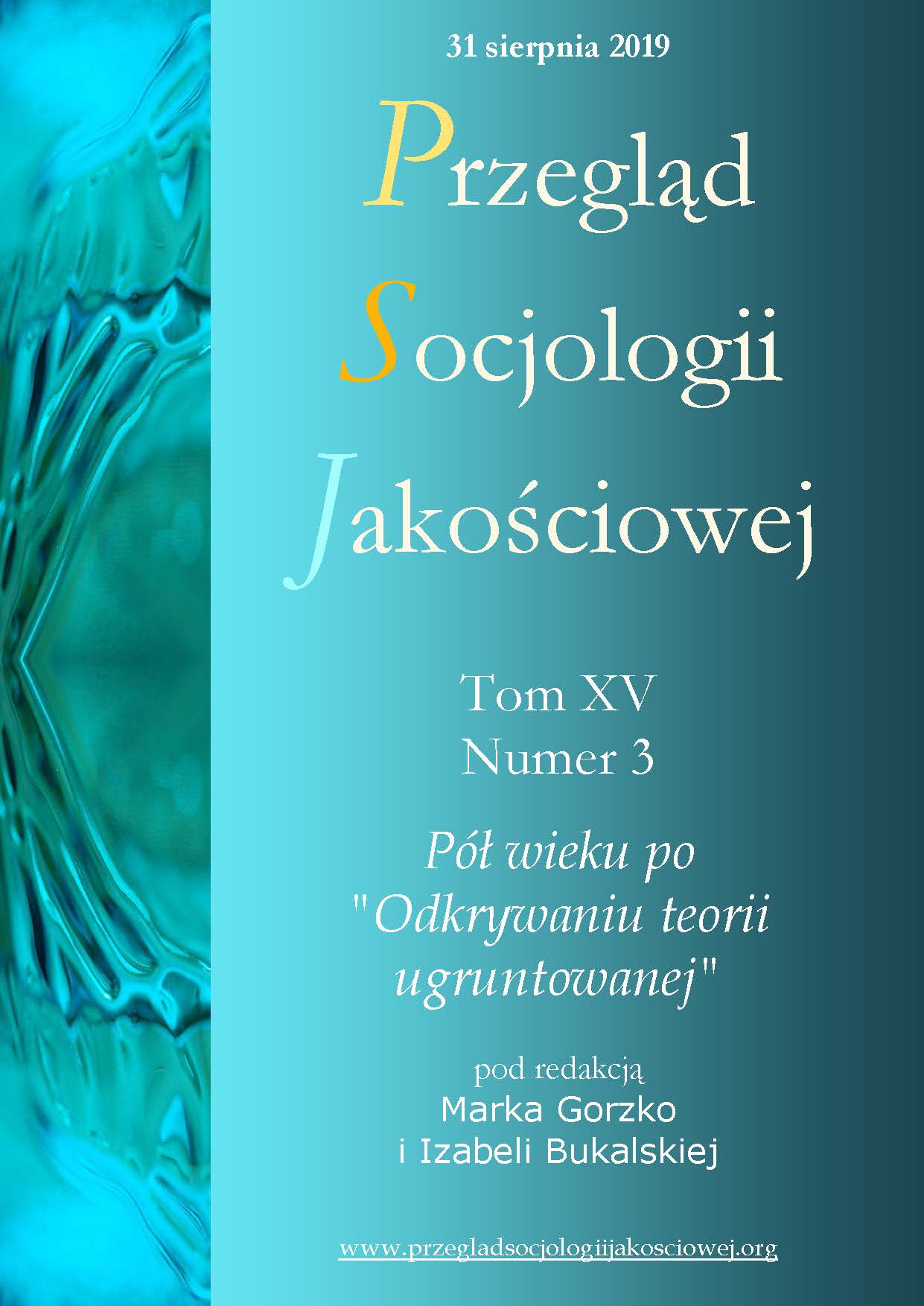Editorial: Grounded Theory Methodology: Contemporary Inspirations, Disputes, and Returns
DOI:
https://doi.org/10.18778/1733-8069.15.3.01Keywords:
grounded theory methodology, Anselm L. Strauss, Barney GlaserAbstract
Since the publication of Barney Glaser and Anselm L. Strauss’ major work, the principles of the authors’ methodology have been used in hundreds of research projects and tested in various field situations. A lively debate taking place among practitioners has revealed a variety of their worldviews, stances, and assumptions that underlie research ventures. It is these factors among other things that led to the emergence of different variants of grounded theory methodology. Today, half a century after the publication of the said work, people beginning their adventure with GTM can – and should – make an informed decision as to the type of GTM that they prefer to use. One obvious advantage of this situation is the fact that many field dilemmas have already been articulated in the source literature, which is why one does not have to confront them in the field on their own. The richness and diversity also applies to substantive areas; the usefulness of GTM is being discovered by researchers of various backgrounds and provenances. Apparently, general interest in methodology is not waning. The volume herein presents some of the questions and matters that are the subject of animated discussions among those researchers who are inspired by the aforementioned perspective.
Downloads
References
Bryant Anthony, Charmaz Kathy (2007) The Sage Handbook of Grouded Theory. London: SAGE Publications.
Google Scholar
Charmaz Kathy (2006) Constructing Grounded Theory. Practical Guide Through Qualitative Analysis, London: Sage.
Google Scholar
Clarke Adele (2005) Situational Analysis: Grounded Theory After the Postmodern Turn. London: Sage Publications.
Google Scholar
Glaser Barney, Strauss Anselm L. (2009) Odkrywanie teorii ugruntowanej. Strategie badania jakościowego. Kraków: Nomos.
Google Scholar
Holton Judith, Walsh Isabelle (2017) Classic Grounded Theory: Applications with Qualitative and Quantitative Data. Los Angeles: Sage.
Google Scholar
Konecki Krzysztof (2012) Wizualna teoria ugruntowana: podstawowe zasady i procedury, „Przegląd Socjologii Jakościowej” t. 8, nr 1, s. 12−45.
Google Scholar
Konecki Krzysztof (2018) Advances in Contemplative Research. Łódź, Kraków: Wydawnictwo Uniwersytetu Łódzkiego/Jagiellonian University Press.
Google Scholar
Redman-MacLaren M., Mills J. (2015) Transformational Grounded Theory: Theory, Voice, and Action, „International Journal of Qualitative Methods”, vol. 14, no. 3, s. 1−12.
Google Scholar
Downloads
Published
How to Cite
Issue
Section
License

This work is licensed under a Creative Commons Attribution-NonCommercial-NoDerivatives 4.0 International License.














